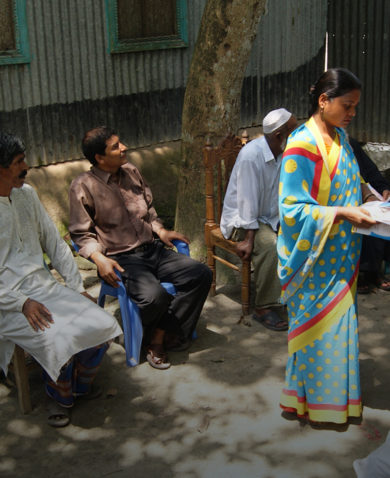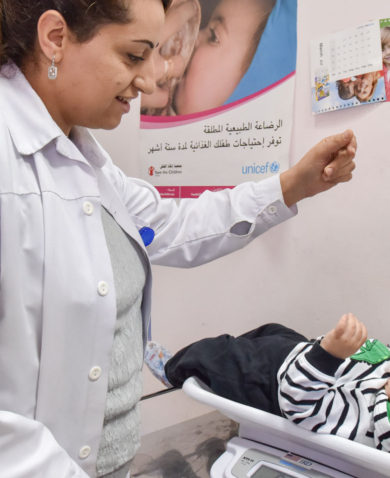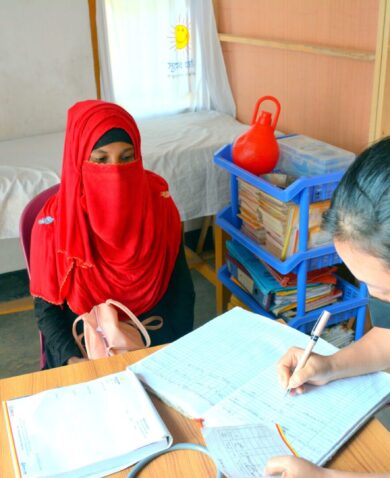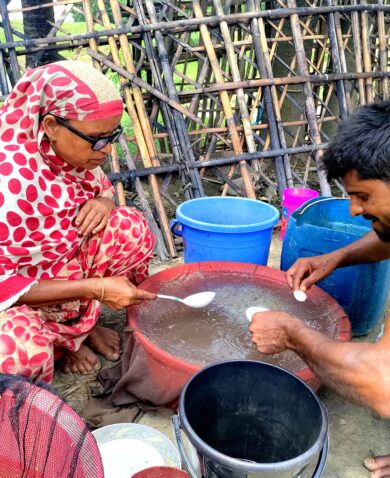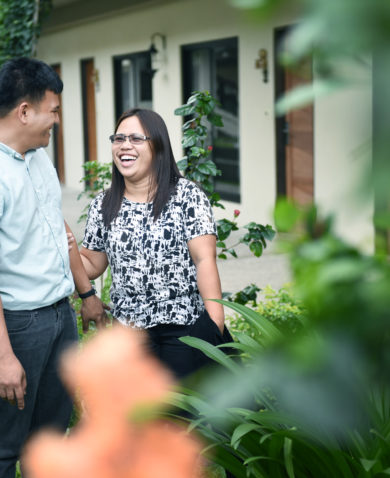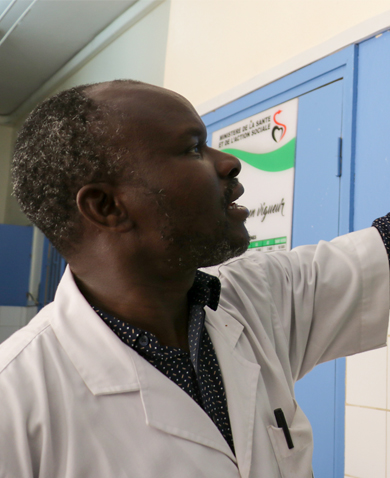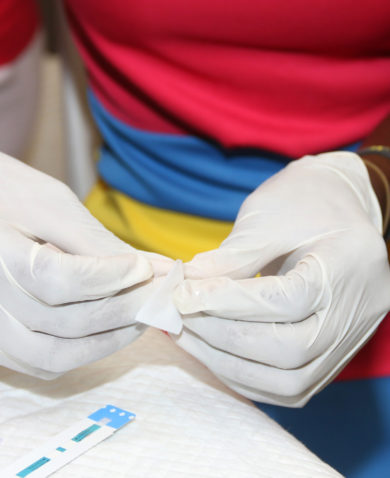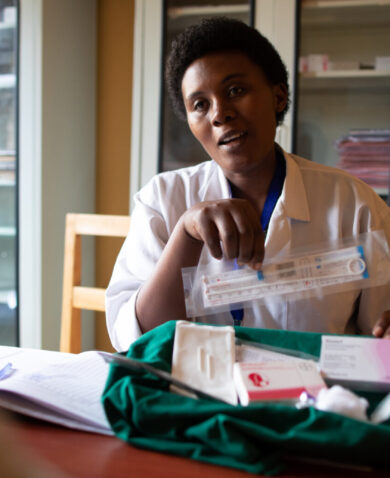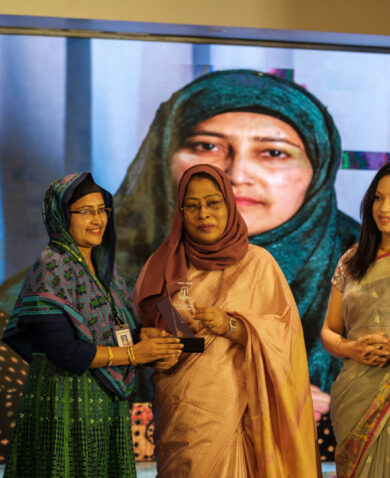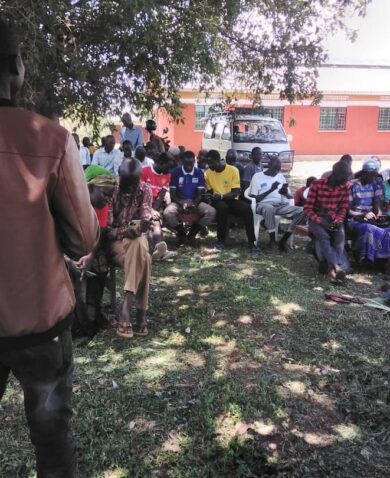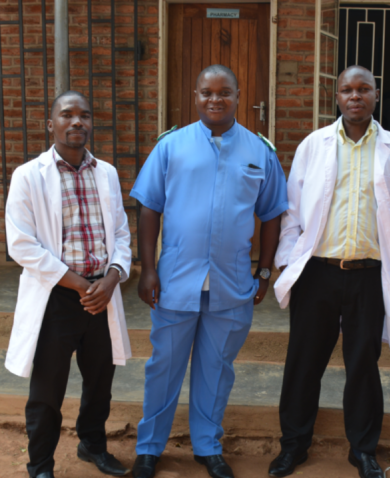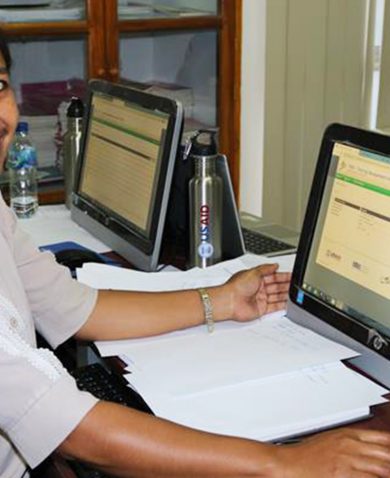
Development Works Here with Grace Namaganda
December 11, 2019 | 4 Minute ReadDevelopment works here because great people work here. We’re excited to introduce you to our team.
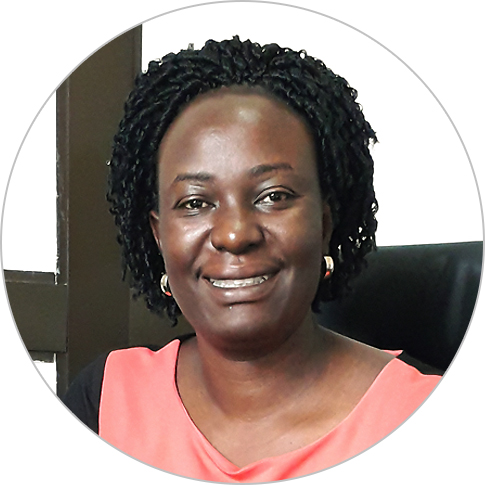
We’d like you to meet Grace Namaganda! Grace is a human resources for health and management specialist. Grace is the country director of the USAID Human Resources for Health in 2030 (HRH2030) program in Malawi. She shares her 15 years of experience working in the public health sector and explains how she has worked with key stakeholders to expand access to health care for all. Grace is one reason #DevelopmentWorksHere.
1. Can you tell us about your background in management of health services and what attracts you to development work?
I began my career as a dental surgeon in a military hospital, and during my six years in this role, I faced challenges similar to what many health workers experience. For example, I did not have adequate equipment, which inhibited my ability to fully practice as a dental surgeon. Even though I was earning a very good salary, I felt very demoralized; all I wanted was to practice and serve my patients. I would stress out every day when patients would come for care, and I was unable to treat them. I was also apprehensive that I would lose my skills. In response, I joined forces with my colleagues to write a proposal articulating these challenges and presented them to my management team. I did not receive the support I needed and that is when I realized that I needed to do something to generally improve the management of health services.
I subsequently enrolled for a master of science degree in a health services management program because I saw the gaps in management firsthand. The program was very enriching and changed my life. I wanted to do more, to have more widespread impact, to be able to influence policy, and to advocate for better health services and working conditions for health workers. So, I decided to contribute to forming a critical mass of health managers to improve health services in Uganda. I worked for almost three years at Uganda Martyrs University as a lecturer and technical assistant training and mentoring all levels of health managers. It was satisfying to see how my students’ skill levels and understanding of health management improved over time. They would leave the university skilled and motivated to change the world. Since then, many have made significant improvements in the way health services are provided in Uganda. After almost three years, I left teaching to start development work because I wanted to practice what I was teaching in a setting that would have real impact.
2. What makes you believe that development works?
In my opinion, development does work. What matters is the way you design and implement. Development fails when the design or the implementation approach is not right. We know that the need is everywhere and that there will always be gaps in resources, so both technical and financial support are important. For development to work, we must align our activities to the beneficiaries’ priorities. If you go into a village and tell a man you’re going to build him a new house because his current one is old, you may not realize that his priority may instead be feeding himself and his family. So, that is where we should always start — working with beneficiaries to jointly identify needs and together address them. That way, not only do you support positive change, you also build long-lasting capacity. That is how development works.
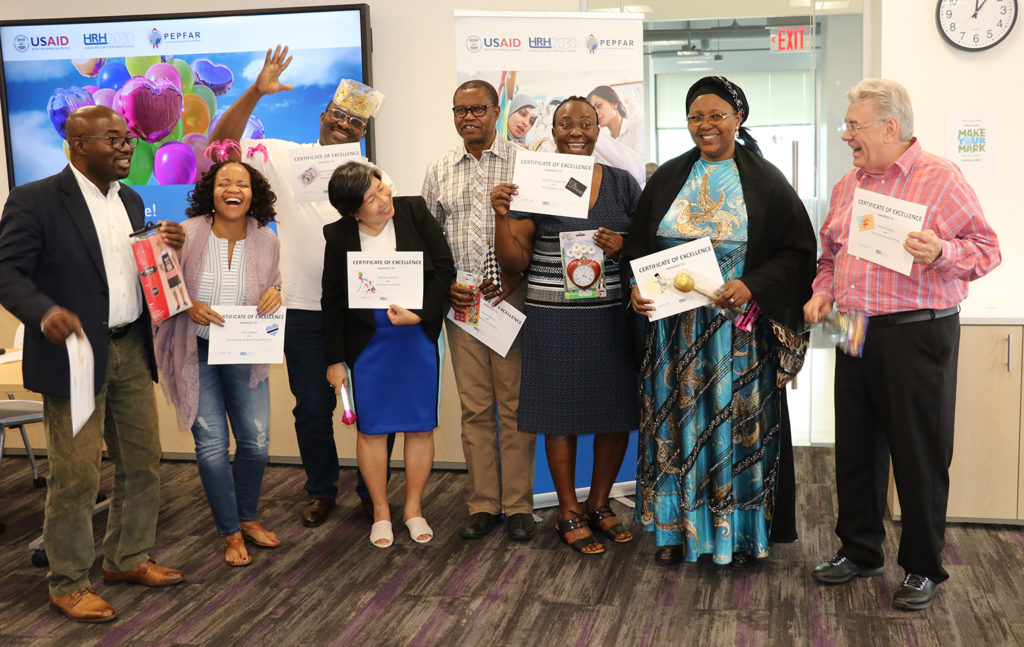
One of the reasons why HRH2030 Malawi has been so successful in supporting health workers’ salaries and empowering female health workers is because we worked with districts and the government extensively to identify gaps and to define the implementation approach. The involvement of the beneficiary in implementation is important. The government of Malawi owned the intervention from the get-go. Using PEPFAR funding, we recruited and deployed health workers in coordination with the government and helped more than 50 percent of them to transition to government. The remaining ones are going to transition by July 2020. Development worked in this case because we collaborated with the government at all stages.
3. What has been the highlight of your development journey so far?
I am extremely excited and proud that HRH2030 Malawi is one of the first countries to systematically transition health workers from PEPFAR to government payroll. In 2018, HRH2030 Malawi was highlighted by PEPFAR as one of the countries whose transition approach should be emulated by other countries. I had to keep a copy of that report. You don’t get that recognition every day!
My other key success was in 2012 while I was working in Uganda. After my project spearheaded some extensive advocacy, the Ugandan government funded the health sector in 2012 to recruit more than 10,210 health workers. This was unprecedented given intermittent freezes of recruitment at the time. We recruited 7,200 of 10,210 health workers within two months, which was a major achievement given the government recruitment bureaucracy. Innovation, extensive mobilization, and strong networks helped to make this happen, and I was proud to receive a standing ovation from the Health Services Committee of Parliament on this achievement. It was unexpected!
The most important lesson I have learned is that as development workers, we need to consistently and passionately support local governments to achieve results. I believe that development works if we work through existing government systems and consistently show that we truly care. If they see passion in you and believe it, the government will also do their part.

